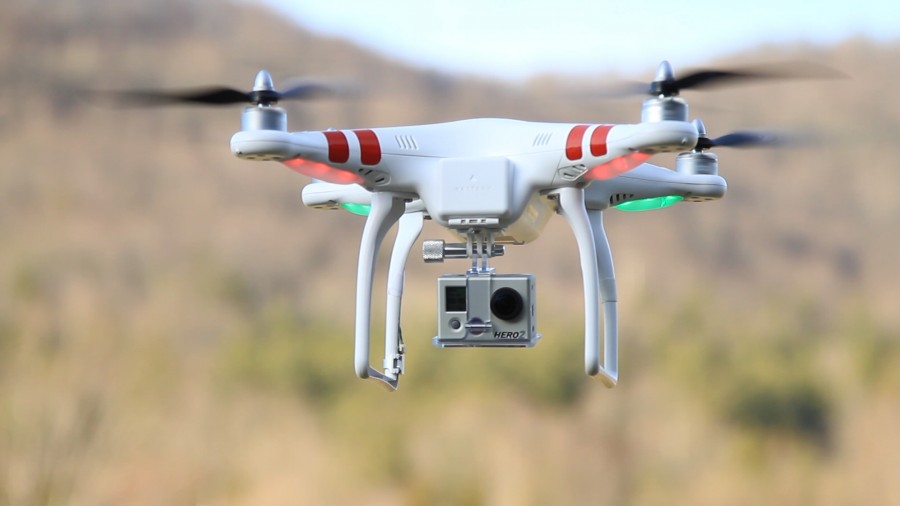Unclear State Laws Keep College Drone Grounded
Dickinson College owns a drone, but the uncertain, ever-changing state and federal aviation laws have kept the machine grounded.
According to Patricia Pehlman, director of Academic Computing at Dickinson College, the technology department purchased the drone in the summer of 2014, intending to use it as a teaching tool for video classes. The model is called a Phantom Quadcopter and ranges in price from $700 to over $1,000. However, until the laws regulating drones are clear, Pehlman says the operation of the quadcopter will be put on hold.
Civilian operation of drones is on the rise in the U.S., yet laws regulating the operation of these machines are lagging. Twenty states have passed laws regulating the use of drones, but Pennsylvania is not among them. While no laws in Pennsylvania target drones specifically, operators can still be cited with noise complaints, disturbing the peace, or harassment and stalking charges, according to Carlisle Police Chief Stephen Margeson.
“Right now we are in a ‘no mans land’ where we don’t know where the laws will go” Pehlman said.
Pehlman says that regulation of these machines has been sluggish because nobody is certain which government agency has jurisdiction of the laws. According to CNN, no one government agency is clearly in charge of regulating civilian drone use, with both the Federal Aviation Administration (FAA) and state administrations claiming responsibility.
Carlisle borough residents had a discussion about drone usage when a concerned citizen brought it up in a Carlisle Public Safety Committee meeting on Sept. 2, 2015. According to Margeson, “There’s nothing on the books that addresses [drone laws] in any fashion.”
According to the FAA, concerns on the operation of these machines are about issues of safety, since these machines often crash, as well as privacy, since the machines often carry cameras. However proposed FAA regulations only cover the former concern, with laws such as “the unmanned aircraft must remain in visual line-of-sight of the operator” being considered.
Carlisle Borough Manager Matthew Candland said “we’re at the point now where we’ve got to try and determine how we deal with drones. I don’t know if we know what the answer is, but I think we know what the question is: How do you deal with drones that are not just flying in someone’s own property, but when they start sending it into the airspace and onto other people’s property and public areas and private areas, how do you deal with that?”
Some citizens, angered over the lack of legislative action to regulate these machines, have taken the law into their own hands. According to Forbes magazine, a woman in Connecticut faces up to a year in jail after assaulting a drone operator who, she claims, was “taking pictures at the beach with a helicopter plane.”
“Maybe one day we can teach students to operate drones as part of a class, but with the laws right now it makes sense to keep our drone in storage,” said Pehlman.
According to Pehlman, Dickinson is trying to avoid any potential liability by making the campus a no-fly zone for drones. Any Dickinson student who wishes to operate a drone on campus must get her permission.






